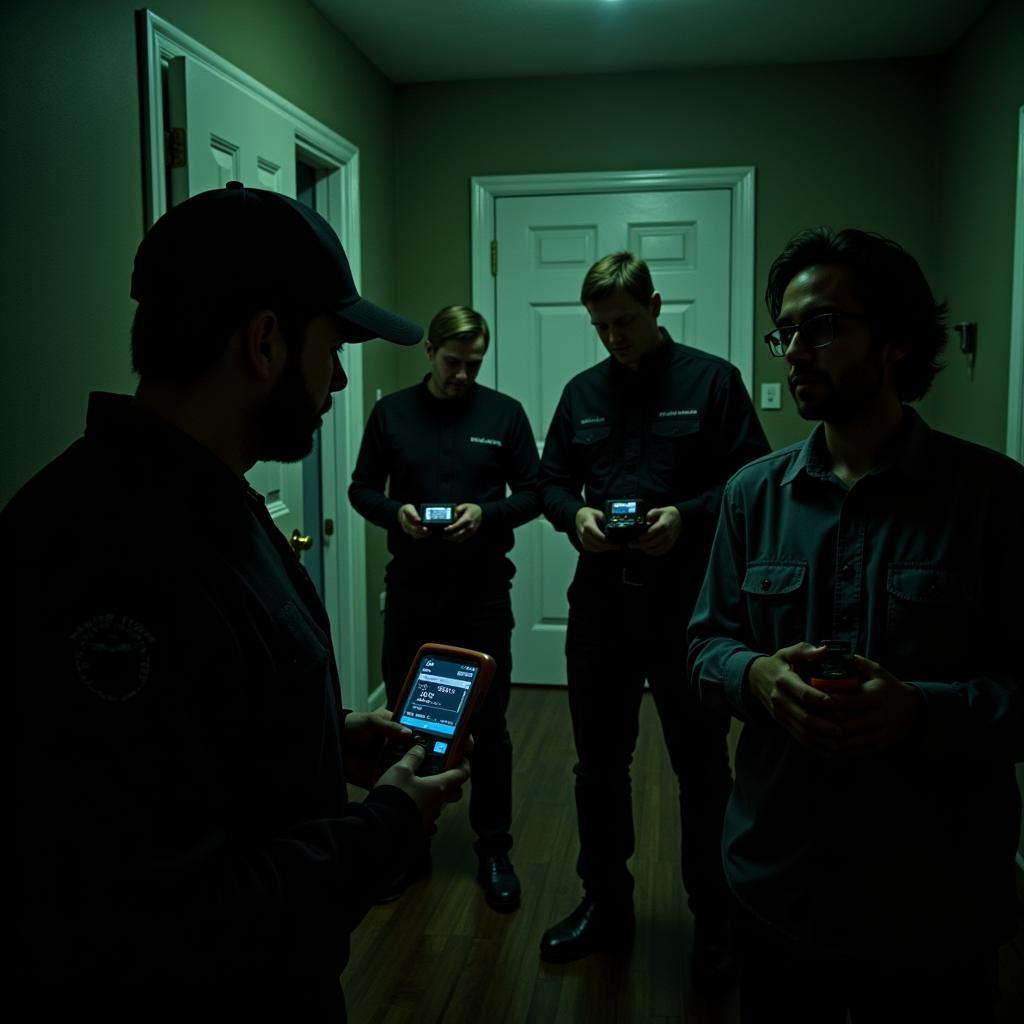Full Circle Research represents a comprehensive and holistic approach to investigation, aiming to uncover hidden truths and gain a deeper understanding of a phenomenon. It involves a cyclical process of inquiry, constantly refining hypotheses and conclusions as new information comes to light. Unlike linear research methodologies, full circle research embraces ambiguity and unexpected turns, recognizing that the path to knowledge is rarely straightforward.
Delving Deeper: The Essence of Full Circle Research
Full circle research transcends the limitations of traditional research methods, which often focus on proving or disproving a predetermined hypothesis. Instead, it embraces a more fluid and iterative process, acknowledging that the research journey itself can lead to unexpected discoveries and a reevaluation of initial assumptions.
This approach proves particularly valuable in fields like paranormal investigation, where the subject matter is often elusive and existing knowledge limited. Full circle research encourages investigators to remain open to various possibilities, constantly adapting their methods and interpretations as they delve deeper into the unknown.
Key Principles of Full Circle Research
Several core principles define the essence of full circle research:
- Open-Mindedness: Preconceived notions and biases can cloud judgment. A successful full circle researcher approaches each investigation with an open mind, willing to consider all possibilities, even those that challenge existing paradigms.
- Thoroughness: Every piece of evidence, no matter how seemingly insignificant, holds potential value. Full circle research emphasizes meticulous data collection and documentation, ensuring that no stone is left unturned.
- Objectivity: While passion fuels the pursuit of knowledge, maintaining objectivity is crucial. Full circle researchers strive to separate personal beliefs from the evidence at hand, analyzing data critically and without prejudice.
- Collaboration: Complex mysteries often require a multidisciplinary approach. Full circle research thrives on collaboration, bringing together experts from various fields to share insights and expertise.
- Adaptability: The path of discovery is rarely linear. Full circle researchers must be adaptable, willing to adjust their methods and hypotheses as new information emerges, even if it means starting over.
Full Circle Research in Action: A Paranormal Investigation
Imagine an investigation into a supposedly haunted house. A traditional research approach might focus solely on proving or disproving the presence of ghosts. In contrast, full circle research would encompass a broader scope:
- Initial Observation: Gathering firsthand accounts from witnesses, documenting any unusual phenomena, and researching the history of the location.
- Hypothesis Formation: Developing potential explanations for the reported events, considering both paranormal and conventional possibilities.
- Data Collection: Utilizing various tools and techniques to collect evidence, such as EVP recordings, EMF readings, and photographic analysis.
- Analysis: Critically examining all collected data, searching for patterns, anomalies, and potential correlations.
- Refinement: Based on the analysis, refining the initial hypotheses, conducting further investigation, or exploring alternative explanations.
This cyclical process continues, with each iteration bringing the investigators closer to a comprehensive understanding of the situation, whether it confirms or debunks the initial claims.
 Paranormal Research Team in Action
Paranormal Research Team in Action
The Importance of Full Circle Research in the Paranormal
The field of paranormal research faces unique challenges due to the subjective nature of experiences and the lack of universally accepted scientific frameworks. This is where full circle research becomes particularly valuable.
By embracing a holistic and adaptable approach, investigators can navigate the complexities of the paranormal realm with greater rigor and open-mindedness. This, in turn, can lead to more meaningful insights, even if definitive answers remain elusive.
ccl research often necessitates a full-circle approach, especially when dealing with complex phenomena that defy traditional explanations.
Conclusion: Embracing the Unknown Through Full Circle Research
Full circle research represents a journey of continuous discovery, embracing the unknown with curiosity and a commitment to uncovering the truth. It reminds us that in the pursuit of knowledge, the process itself is just as important as the destination. By adopting the principles of full circle research, we open ourselves to a deeper understanding of the world around us, even in the face of its most perplexing mysteries.
For those seeking answers in the realm of the paranormal, full circle research offers a rigorous yet adaptable framework, encouraging us to question assumptions, explore all possibilities, and ultimately, embrace the unknown.
Frequently Asked Questions about Full Circle Research
1. How is full circle research different from traditional research?
Unlike traditional linear research that focuses on proving a hypothesis, full circle research is iterative and embraces unexpected findings, constantly refining its direction.
2. Why is full circle research important for paranormal investigation?
The paranormal field lacks standardized scientific methods. Full circle research’s adaptability and open-mindedness make it suitable for navigating this complex and often subjective area.
3. What are the key skills needed for successful full circle research?
Essential skills include open-mindedness, thoroughness, objectivity, collaboration, and adaptability, allowing researchers to navigate complexities and remain open to various possibilities.
4. Can full circle research be applied to other fields besides paranormal investigation?
Absolutely. Its principles are valuable in any field requiring in-depth investigation and analysis, particularly where existing knowledge is limited or constantly evolving.
5. Where can I learn more about full circle research techniques?
Many resources exist online and in libraries, including books, articles, and documentaries exploring various research methodologies and their applications in different fields.
Remember, if you’re seeking assistance with Paranormal Research or require expert guidance, our team is available 24/7. Contact us at Phone Number: 0904826292, Email: research@gmail.com, or visit our office at No. 31, Alley 142/7, P. Phú Viên, Bồ Đề, Long Biên, Hà Nội, Việt Nam.
lts research laboratories inc provides a great example of how this approach can yield unexpected results.
For further insights into specific research areas, consider exploring topics like when did turkesterone research start or research chem bpc 157.
Don’t hesitate to reach out – we’re always here to help you delve deeper into the mysteries that captivate your curiosity.